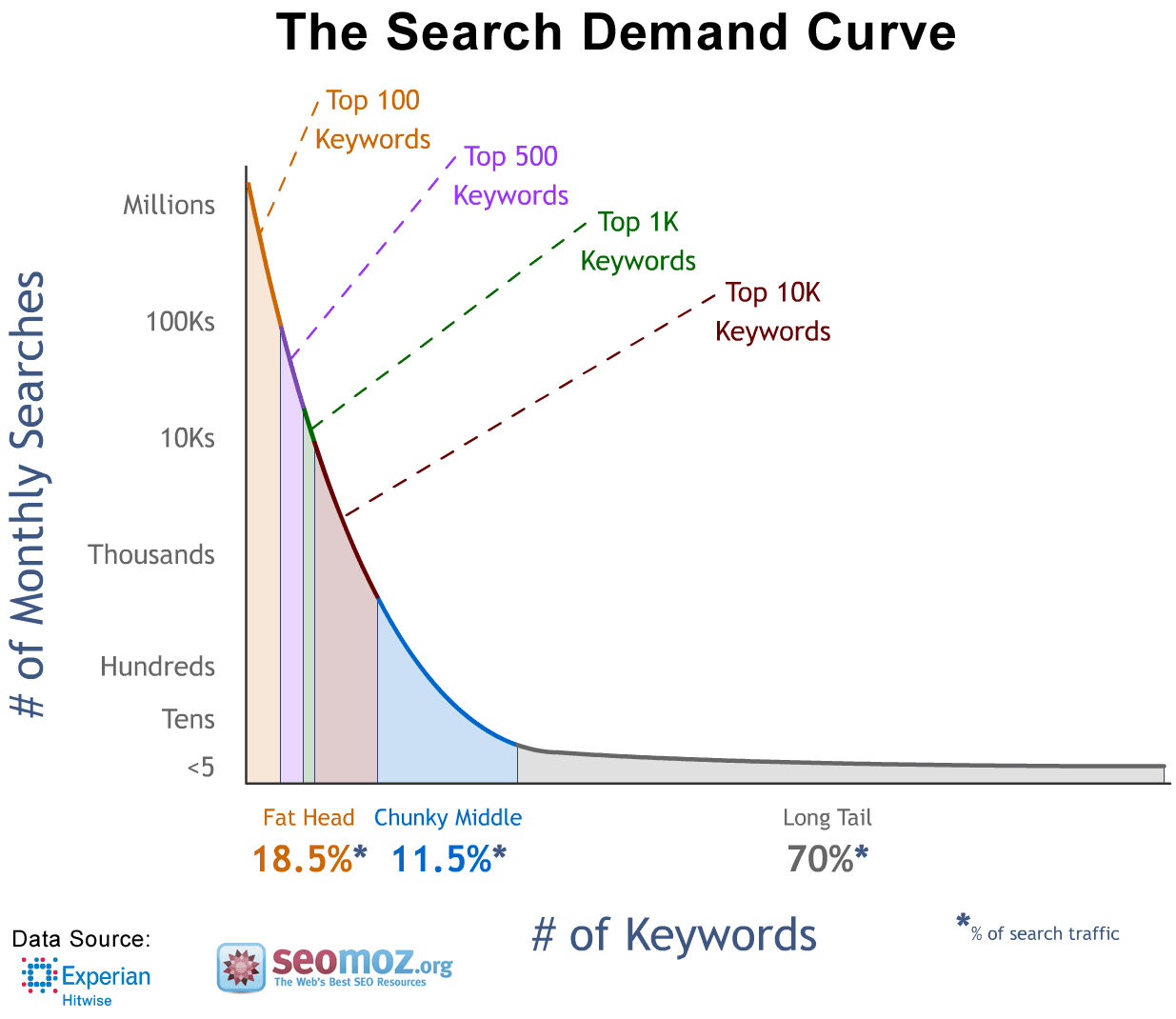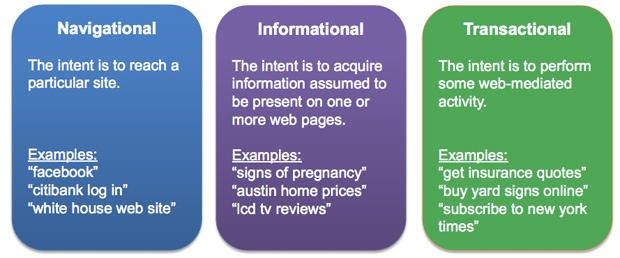Ranking for long tail keywords are one of the many different SEO strategies that you can implement into your digital marketing strategy. As the digital space has evolved, the number of SEO methods available to businesses has also increased. And when it comes to improving your website’s visibility in the search engines, you should make the most of any opportunities out there.
Difference Between Long Tail And Short Tail Keywords
Using keywords to optimise content isn’t a new concept. People have been doing keyword research and using target keywords for years. However, the focus has been on head keywords (or short-tail keywords) with a high search volume. This can make it very difficult for your content to get noticed or rank anywhere near the top in SERPs. However, long-tail keywords (or keyword phrases) make it possible to play with the big guns.
Optimising your content with the right long-tail keywords can make it easier to rank higher SERPs. This doesn’t mean head keywords don’t have their place. Ideally you will use both head keywords and long-tail keywords within your content optimisation strategy.
What Are Long Tail Keywords?
A long-tail keyword is a more specific search. The search term is generally more similar to how you would ask a question face to face. On the other hand, head keywords, are very general with a high search volume. Typically, less content is created around this topic.
Long-tail keywords are the foundation of an effective SEO strategy and account for 70% of all web searches.

This image shows the concept of long-tail keywords: a more specific topic (or key phrase) means less competition.
A simple way to get an idea of what long-tail keywords your audience is searching for is to type a query into Google. You’ll notice a ‘related keywords’ and ‘people also search for’ list suggestions. These are the other search terms being used.
You can also use a keyword research tool like Ubersuggest or SEMrush to help you find long-tail keywords that will help your SEO ranking.
Target Local Searches
Local businesses or smaller businesses will have a hard job competing with larger companies in a saturated market. There will always be competing companies out there with a bigger budget or bigger brand awareness. That’s why you need to be smart with your SEO strategy.
Long-Tail Keywords For Local SEO
Whether it’s being searched via Google Maps, Apple Maps or Search, most people will search for a local business before actually visiting the physical location.
For example, if you’re looking for somewhere to eat that evening you’re likely to search ‘best restaurants near me’. Although you can’t target this keyword exactly, you can use target keywords that relate to location. For example, ‘best restaurants in west midlands’.
The search engine will then return your business in the results. Alongside ranking for long tail keywords, local businesses should also make sure their Google My Business information is accurate.
Local SEO is essential in today’s market with almost half of Google Searches being for local business. In fact, 76% of people have made a search for a business using their mobile and visited the location within 24 hours. With that in mind, you can see the importance of local search and using target local-intent keywords.
Intent Keywords
When optimising your content you should pay attention to high intent and low intent keywords. These keywords indicate a strong intent by the user to make a transaction. That may be a purchase, an enquiry about a service, or another call to action that later leads to a sale.
It’s important to include intent keywords in your content, especially for commercial businesses. Intent keywords are very useful for commercial businesses. High intent keywords being especially important to the later stage of the sales funnel.
There are three basic types of search query:
- Informational – searches performed to answer questions or learn something
- Navigational – searches performed to locate a specific website
- Transactional – searches performed to buy something
Take a look at the explanation below from Wordstream:

As you can see, commercial intent keywords are only relevant to transactional searches. If keywords can be considered “indicators” from potential customers, keywords with commercial intent are what you want.
Low intent keywords fall under the navigational or informational categories. Someone looking for information on a specific topic or who is searching for a particular website is not likely to make a purchase.
Long-Tail Keywords For Voice Search
The basic concept of SEO has always applied to Internet search engines like Google that deliver results for human users.
Not anymore! Gone are the days of simply typing the query into a search box. Voice search technology allows people to make a verbal search. This is either via a smartphone, smart device or a computer. The query is then answered by a search engine or a digital assistant.
Digital voice assistants such as Amazon Alexa are finding their way into people’s homes at a staggering rate. Long-tail keywords are the best way for you to rank highly in voice SERPs. They help you to train voice assistants to return your information to mobile voice users. Voice assistants are designed to understand natural phrases. For example, “what is the best Italian restaurant in the West Midlands?’ Your SEO needs to reflect this.
Final Words
Less competition is a big advantage to ranking for long tail keywords, but it isn’t the only one. As we mentioned earlier, typically, less content is created on this subject. This means you have an opportunity to become an authoritative voice in your industry.
A business that is well respected can be less sales focused and more customer experience focused. A user that has a positive experience is more likely to convert and tell people about their experience.
Ultimately, keywords are the foundation of your entire digital marketing strategy. So it’s important to keep up-to-date with the most effective methods.
Regardless of your digital marketing strategy, long-tail keywords should be part of it if you want to remain competitive in your market.
Digital Agency West Midlands Can Help
Are you looking to improve you ranking for long tail keywords and need help? Get in touch with a member of our team today or check out our Free Beginners Guide to SEO. We can help drive your business forward using proven SEO practices.

